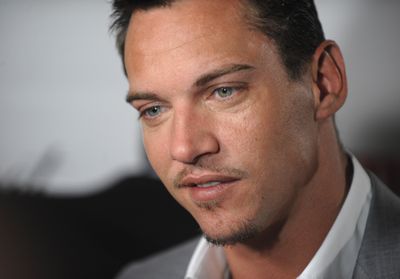Showtime’s ‘Tudors’ returns Sunday

When Henry VIII put his second wife, Anne Boleyn, to death, he clearly was not considering the deleterious effect it would have on the Showtime series “The Tudors.”
Although such self-centered shortsightedness is the historic right of princes, it’s a bit of a drag for fans of the show, which premieres its third season Sunday night.
Because though the new queen – poor, doomed Jane Seymour (Annabelle Wallis) – is lovely and, in this version, surprisingly feminist, she does not have the increasingly desperate scheme-and-sizzle factor (or, for that matter, the super-hot nightgowns) of our gal Anne (Natalie Dormer).
But then Henry (Jonathan Rhys Meyers) is older now and feeling it. As intra-court treachery, domestic issues and, of course, the Reformation roil around him, he is growing increasingly sweaty, psycho and septic (old leg wound).
He also really, really needs to have a son, and, as even modern couples know, that kind of procreative pressure can take all the fun out of sex.
Which isn’t to say he’s embraced monogamy – there’s a certain lady-in-waiting, depicted in publicity material like the leather-bodiced definition of “strumpet” – who keeps him busy (although with the questionable foreplay of dressing his oozing wound).
But if early episodes are an indication, most of the royal steam will be occurring off-screen. (Bare breasts abound, though – it is Showtime, after all, and Henry isn’t the only game in town.)
With Anne and her deliciously wretched father (Nick Dunning) out of the way, Henry is left with more mundane matters, including heading the church he began so he could marry her.
Under orders from the king, and, of course, the obsessively Catholic-hating Thomas Cromwell (James Frain), soldiers tear through the countryside destroying monasteries and churches. Finally, the people begin to push back, staging the Pilgrimage of Grace, which, despite the efforts of Charles Brandon (Henry Cavill), will not end well.
Last season, many complained that Rhys Meyers’ performance had become alarmingly one-note, and although his descent into a more mature form of megalomania appears to be under way, this remains a concern.
His decision to play Henry as hot, both visually and personality-wise, is limiting, and he does not convince entirely as a man who has just put to death both his long longed-for wife and his closest adviser, Thomas More (Jeremy Northam, also very missed).
“The Tudors” remains lush and bejeweled, so much so that at times one fears it will simply collapse under its own weight – and, you know, we still have a few wives to go.